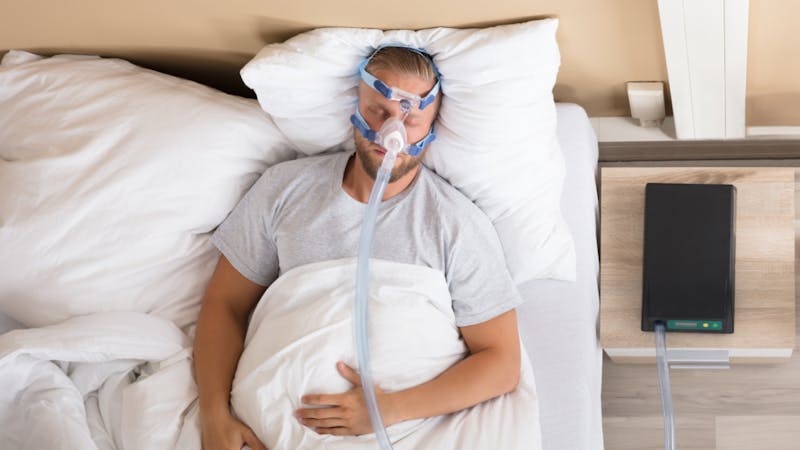
People who experience difficulty breathing at night are often diagnosed with sleep apnea. This condition is found in three distinctive types and in varying levels. It is important for the individual’s health that treatment for this condition is obtained. The three types of sleep apnea are obstructive sleep apnea, central sleep apnea, and mixed sleep apnea.
Obstructive Sleep Apnea
Individuals who have obstructive sleep apnea often have difficulty breathing during the night while sleeping. Typically, they can be heard snoring because the soft tissues found in the back of their throats have become flaccid and collapsed into the airway, narrowing the space that is usually available for the passage of air. While people suffering from obstructive sleep apnea usually wake themselves up with their snoring, it is also quite common for other people in the home to shake them awake. When consulted, a physician will prescribe a recommended treatment plan that often involves the use of either a CPAP or BiPAP machine.
Central Sleep Apnea
Patients with central sleep apnea experience periods during slumber when they completely stop breathing. During this episode, the patient’s airway is open. However, the individual’s brain does not continue to send the signal that allows breathing to take place. Fortunately, patients awaken from this phase due to the lack of oxygen. A physician with experience in treating apnea will develop a course of treatment that usually involves the use of prescription medication along with specialized equipment.
Mixed Sleep Apnea
When a patient experiences symptoms from both obstructive sleep apnea and central sleep apnea, the condition is called mixed sleep apnea. Getting treatment is a critical component of maintaining good health. A qualified physician can personalize the treatment plan for the patient, and typically, this strategy will involve the use of specialized equipment.
Summing Up
Once you’ve been diagnosed with sleep apnea, it becomes necessary to change the way that you sleep. A physician must be consulted to find out what the best course of treatment for you is. Three types of sleep apnea exist, including obstructive sleep apnea, central sleep apnea, and mixed sleep apnea. The type that you have usually influences the course of treatment.

